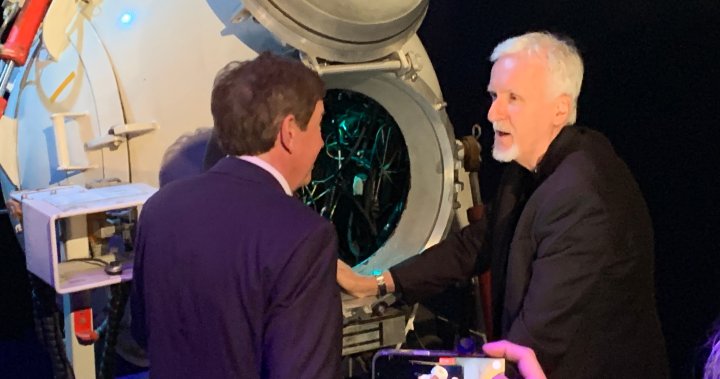James Cameron, the acclaimed director of the Titanic film and a deep-sea explorer, has called for stricter regulations for passenger submersibles in the wake of the OceanGate Titan disaster. Cameron, who has extensive experience in the exploration sector, emphasized the importance of upholding rigorous safety and testing standards in order to ensure the safe operation of these vehicles.
Cameron spoke about the need for specific regulations for passenger submersibles, comparing them to ships that transport passengers. He emphasized the importance of treating these vehicles with the same level of regulation and scrutiny to prevent disasters like the one involving the Titan.
During a presentation in Ottawa, Cameron discussed his own submersible, the Deepsea Challenger, which underwent seven years of testing, including pressure and disaster response training, before it was used for deep-sea voyages. Cameron explained that as a filmmaker, he has a vivid imagination and is able to anticipate potential problems, such as implosion, and used this knowledge to design and engineer the vessel accordingly.
Cameron highlighted the remarkable safety record of the deep submergence community, with over a half-century of accident-free exploration and research. He also noted that tourist diving in submersibles has also been incident-free, except for the recent OceanGate Titan disaster, which he described as an extraordinary outlier.
The OceanGate Titan was carrying a tourist crew on a voyage to explore the Titanic wreckage when it lost contact with its launch vessel. A search and rescue operation was launched, but the vessel was ultimately found to have imploded, resulting in the loss of all five people on board, including OceanGate CEO Stockton Rush.
Regulating submersibles is a complex issue, according to maritime lawyer William Sharpe. While ocean-faring ships, such as the Polar Prince, are subject to the maritime and international laws of their country of origin, submersibles like the Titan do not have the same requirements. Sharpe suggested that a solution would be to introduce national or international rules requiring all submersibles used for commercial purposes to be flagged, subjecting them to the power of international or national laws.
The Transportation Safety Board (TSB) has launched an investigation into the OceanGate Titan incident. The TSB has finished collecting relevant documents and conducting preliminary interviews with people on board the Polar Prince, the launch vessel. The investigation is still ongoing, and the TSB is analyzing the vessel’s voyage data recorder.
Transport Canada, the regulatory body responsible for overseeing submersibles registered in Canada, stated that any regulatory changes would depend on the size of the submersible and the number of passengers it carries. OceanGate, an American company, has suspended all commercial and exploration operations since the incident.
The investigation into the OceanGate Titan disaster is still ongoing, and more information is yet to be released by the TSB. Transport Canada has stated that it would be premature to discuss any regulatory changes or potential work at the International Maritime Organization while the investigation is in progress.
Denial of responsibility! VigourTimes is an automatic aggregator of Global media. In each content, the hyperlink to the primary source is specified. All trademarks belong to their rightful owners, and all materials to their authors. For any complaint, please reach us at – [email protected]. We will take necessary action within 24 hours.


